Mini-Mock Trials are shorter versions of mock trial, taking an average of 2-3 hours. They are helpful for teaching about trial procedure as well as teaching the particular content of the trial. For example, one mini mock trial teaches driving responsibility.
Tag Archives: civics
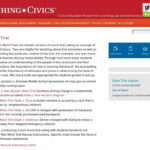
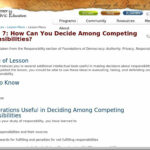
How Can You Decide Among Competing Responsibilities?
This lesson introduces you to several additional intellectual tools useful in making decisions about responsibility. When you have completed the lesson, you should be able to use these ideas in evaluating, taking, and defending positions on issues of responsibility.
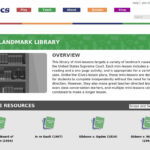
Landmark Library
This library of mini-lessons targets a variety of landmark cases from the United States Supreme Court. Each mini-lesson includes a one-page reading and a one-page activity, and is appropriate for a variety of uses. Unlike the iCivics lesson plans, these mini-lessons are designed for students to complete independently without the need for teacher direction.

Polotics and Public Policy
This unit is designed to provide students with an introduction to the electoral processes of the American political system. Students will develop a strong foundation that will inform them of their choices and encourage civic involvement. The Politics and Public Policy unit guides students to a deep understanding of concepts and processes through simulations, presentations, […]
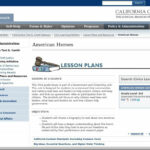
American Heroes
This third grade lesson is part of a Government and Citizenship unit. This unit is designed for students to understand that communities and nations need laws and leaders to help protect citizens and keep order, and that our government relies on participation from its citizens. The students will focus on why citizens need laws and […]
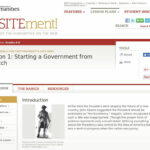
Starting a Government from Scratch
At the time the Founders were shaping the future of a new country, John Adams suggested the President should be addressed as H”is Excellency” Happily, others recognized that such a title was inappropriate. Though the proper form of address represents only a small detail, defining everything about the Presidency was central to the idea of […]
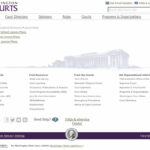
Judges in the Classroom Lesson Plan
Students will analyze the concept of procedural justice by: identifying in a play the unfair decisions by the ruler, stating the procedural guarantees that ought to be included in a Bill of Rights, comparing their list of procedural guarantees to the procedural guarantees provided by the U.S. Constitution and Bill of Rights, and concluding that […]
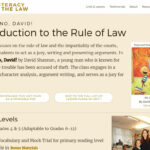
Introduction to the Rule of Law
This unit focuses on the rule of law and the impartiality of the courts, requiring students to act as a jury, writing and presenting arguments. In the book No, David! by David Shannon, a young man who is known for getting into trouble has been accused of theft. The class engages in a mock trial, […]
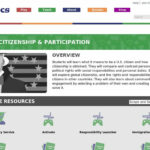
Citizenship and Participation
Students will learn what it means to be a U.S. citizen and how citizenship is obtained. They will compare and contrast personal and political rights with social responsibilities and personal duties. Students will explore global citizenship, and the rights and responsibilities of citizens in other countries. They will also learn about community engagement by selecting […]

What is Community
An Introduction to 6th Grade Social Studies With Lesson 6, students move away from the study of individuals to the study of groups of people. An investigation of world history is ultimately an exploration of how groups of people formed communities, cultures, and civilizations.
